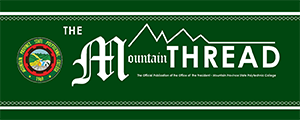In the pursuit of fostering an inclusive educational environment, the School of Advanced Education has continuously upheld diversity as a fundamental pillar of a thriving learning community. Acknowledging the imperative need to address gender inequalities, the SAE conducted a transformative two-day seminar-workshop titled "Empowering Research Excellence: A Gender Inclusive Approach", on December 6-7, 2023.
 |
This significant initiative sought to empower faculty members, renowned for their experience and innovation, by focusing on research publication strategies aligned with the requisites outlined in CMO15, s. 2019. Compliance with these publication standards is pivotal for qualification to teach in the graduate programs of MPSPC, reinforcing its commitment to academic rigor and excellence.
Drawing from the expertise of distinguished resource speakers from Benguet State University, notably, Dr. Apler J. Bansiong and Dr. Janet Lynn M. Balagtey, this seminar-workshop stood as a platform for sharing invaluable insights and knowledge. Their contributions served as guiding lights, illuminating the path toward overcoming barriers and fostering an environment conducive to inclusive research practices.
The seminar-workshop's agenda was thoughtfully curated to include engaging sessions that encompassed a wide scale of research publication methodologies. Attendees were equipped with the necessary tools to navigate the intricacies of scholarly publication, enabling them to contribute meaningfully to their respective fields.
Furthermore, the event placed considerable emphasis on fostering an inclusive approach, addressing gender disparities that persist within academic circles. By centering discussions on gender inclusivity, it aimed to catalyze a shift towards more equitable and diverse research environments. Through open dialogue and constructive critique, the seminar-workshop encouraged the cultivation of an inclusive mindset essential for holistic academic growth among graduate school faculty.
Following the enriching sessions, the seminar-workshop encouraged participants to present their outputs, fostering an environment conducive to constructive feedback and peer collaboration. This collaborative exchange of ideas nurtures a culture of continuous improvement, where individuals are encouraged to refine their research outputs in a supportive and inclusive setting.
As the seminar-workshop unfolded, it stood as a testament to the College’s unwavering commitment to fostering an academic environment that celebrates diversity, empowers inclusivity, and ultimately paves the way for scholarly flourishing.




